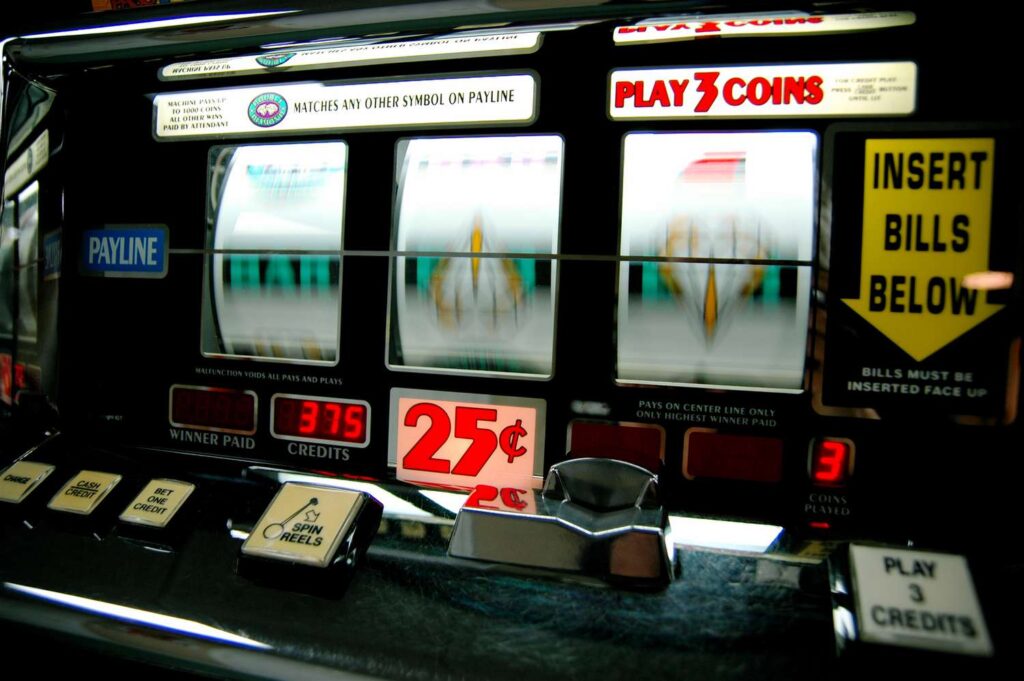
In the dynamic world of gambling, Artificial Intelligence (AI) stands out as a groundbreaking force. This blog post delves into the intriguing intersection of AI and gambling, focusing on a critical aspect: the potential of AI in understanding and possibly cracking Slot Machine Random Number Generators (RNGs). These RNGs are the heart of slot machines, determining the outcome of each game. As AI continues to evolve, its impact on gambling practices and the industry’s future becomes a topic of intense discussion and interest, particularly in its application to the enigmatic world of slot RNGs.
Table of Contents
What is Slot RNG?

Source: liveabout.com
Random Number Generators (RNGs) in slot machines are complex algorithms responsible for generating random and unpredictable outcomes in each game. This technology is central to the integrity and fairness of slot gaming. RNGs ensure that every player has an equal chance of winning, making each spin independent of the previous one. Understanding how RNGs operate is crucial in recognizing their significance in the gambling industry. They are not just mere components of gaming software but are pillars upholding the principle of chance and fairness in casino gaming.
The Complexity of Slot RNG
The intricate nature of Slot RNG algorithms is what makes them both fascinating and formidable. These algorithms are designed to produce outcomes that are not just random but also unpredictable, making the task of forecasting any single result an extremely complex challenge. This complexity is intentional, as it prevents predictability and manipulation, thereby ensuring the integrity of the game. The unpredictability of RNGs is a testament to the advanced technology and sophisticated mathematics that underlie modern slot machines, making them a subject of interest for Artificial Intelligence exploration. The ebay way to dive into the depths of these machines is by playing lightning roulette free play and see it for yourself.
AI’s Role in Analyzing Data
AI’s capability to process and analyze vast amounts of data rapidly positions it as a powerful tool in the gambling industry, especially in understanding the patterns of Slot RNGs. Artificial Intelligence systems can sift through extensive data sets generated by slot machines to identify potential patterns or anomalies. While RNGs are designed to be random, the application of AI in analyzing these patterns could lead to insights into their operational mechanics. This understanding could revolutionize slot gaming, offering a new perspective on how these machines function and how outcomes might be predicted.
Machine Learning Algorithms

Source: analyticsinsight.net
Machine Learning (ML), a subset of Artificial Intelligence, plays a pivotal role in gambling, particularly in analyzing and predicting gaming patterns. ML algorithms are capable of learning from data, adapting over time to recognize patterns and anomalies. In the context of slot machines, ML can be used to study vast amounts of game data, potentially identifying trends or biases in the RNG process. Although RNGs are designed to be random, the power of ML lies in its ability to analyze data in ways humans can’t, offering a unique lens through which the mechanics of slot machines can be understood and potentially predicted.
AI-Powered Slot Strategies
The idea of AI developing strategies for playing slots is both intriguing and controversial. AI-powered systems could potentially analyze vast data from slot machines to devise strategies that might improve a player’s chances of winning. However, this concept raises questions about the fairness and ethics of using Artificial Intelligence in gambling. While it could lead to more strategic play, it also poses a risk of unbalancing the game, favoring those who have access to such advanced AI tools over average players.
Challenges of AI in Gambling
Integrating AI into gambling raises several ethical concerns and potential risks. The primary concern is fairness: if Artificial Intelligence can predict or influence gambling outcomes, it could erode the essence of gambling, which is chance and uncertainty. There’s also the risk of AI being used unethically to exploit gambling systems or players. Moreover, the use of AI in gambling could lead to regulatory challenges, as authorities strive to maintain a balance between technological advancement and ethical gambling practices.
Regulatory Aspects

Source: thesentiment.com.au
Regulatory bodies face the challenge of keeping up with technological advancements like AI in gambling. These authorities must ensure that the integration of AI into gambling doesn’t compromise fairness and transparency. They are tasked with developing guidelines and rules that govern the use of Artificial Intelligence in casinos and online platforms, ensuring that all advancements, including those in RNG technology, comply with ethical standards and protect the interests of all stakeholders involved.
Case Studies
Several real-life examples highlight the use of AI in the gambling industry. From AI systems designed to detect fraudulent activities to algorithms used for personalizing gaming experiences, AI’s presence in gambling is growing. However, its application in cracking Slot RNGs remains largely theoretical. Success stories and setbacks in these areas offer valuable insights into the potential and limitations of Artificial Intelligence in gambling.
Limitations of AI
Despite its advanced capabilities, AI has limitations in deciphering Slot RNGs. The inherent randomness and complexity of these systems make it exceptionally challenging for AI to make accurate predictions. While AI can analyze patterns and trends, the unpredictable nature of gambling means that outcomes are never guaranteed. This uncertainty underscores the limitations of Artificial Intelligence in gambling and the enduring element of chance in slot games.
Responsible Gambling

Source: enteractive.com
In the midst of AI’s integration into gambling, the importance of responsible gambling cannot be overstated. Artificial Intelligence can be a tool for promoting responsible gaming, for instance, by identifying problematic gambling behaviors. However, the use of AI should always align with the principles of responsible gambling, ensuring that it enhances, rather than detracts from, the safety and fairness of the gaming experience.
Conclusion
As we explore the intersection of AI and gambling, particularly in understanding Slot RNGs, we are faced with a blend of possibilities and challenges. AI offers a unique perspective on the complexities of slot machines, yet its ability to crack the code of RNGs remains uncertain. This exploration leads us to a broader conversation about the future of AI in gambling, balancing technological advancement with ethical and responsible gaming practices.







